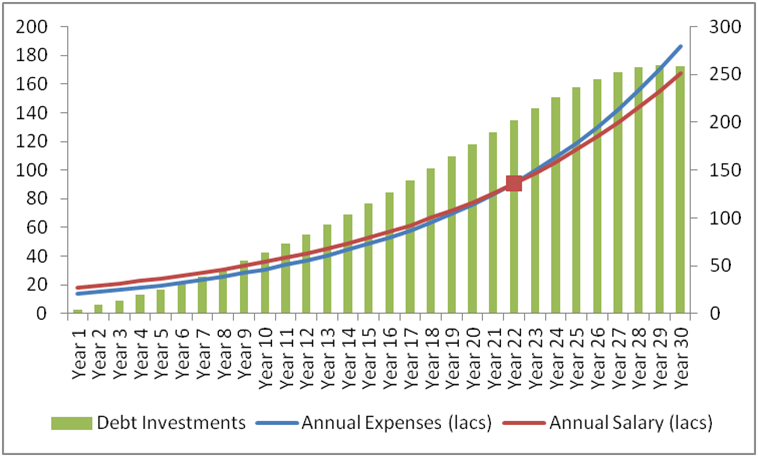What are Top Up Plans?
Also known as Deductible Plans, Top Up Health Plans provide a cover over and above a certain base cover. This base cover in most cases come from existing policies. Some Top Up Plans allow deductible options even without an existing insurance policy.
In cases where there is an existing insurance policy, reimbursement against any claim that arises will first be made out of the existing policy. The liability of the Top Up Plan arises only after the set threshold of the existing plan has been exhausted.
In cases where there is no existing policy and the Top Up Plan permits such a situation, expenses up to the threshold level has to be borne by the insured out of his or her own pocket. The liability of the Top – Up Plan arises only after the set threshold has been exhausted.
Example 1:
Ajay has a health insurance cover from his employer of 8 lacs. He purchases a top up plan for 10 lacs with a deductible of 3 lacs. An unfortunate event of hospitalization generates a claim of 9 lacs. Ajay can use either of the following options:
Option 1: Raise a claim of 8 lacs against the employer health plan and balance 1 lac against the top up plan
Option 2: Raise a claim of 3 lacs against the employer health plan and balance 6 lacs against the top up plan
So basically, the top up plan gets activated only when the deductible threshold is crossed.
Example 2:
Vijay does not have any existing health plan except a top up cover of 10 lacs with a deductible of 1 lac. He gets hospitalized and has to raise a claim of 3 lacs. In this case, Ajay will have to pay the initial 1 lacs from his own pocket and the Top – Up Plan will consider only balance amount of 2 lacs for claim settlement.
Why are Top Up plans useful?
These plans are useful for two simple reasons:
- A high coverage is available at a significantly low premium
- In an event of a medical emergency where the amount of expenses tend to spiral beyond the usual ranges, these plans come to rescue
Who should buy Top Up Plans?
- Salaried people who have a basic corporate cover – Smaller hospitalization claims can be covered by the corporate cover and in case of larger expenses, Top Up Plans can be utilized. This also means that post retirement, claims up to the deductible amount will have to be either self – funded or funded through a Base Insurance Plan. However, since deductibles are pre-decided, the same can be set aside as an emergency fund.
- Salaried people who plan to change jobs or start on their own – Top Up Plans are an excellent option in this case. The cover and the low cost premium continues irrespective of whether you are salaried or get into entrepreneurship.
- People who have sufficient resources for covering up small ticket emergencies – These people can leverage the low premium Top Up Plans to cover themselves for any eventualities
- People who have a Base Insurance Plan with a basic cover amount of 5-10 lacs – In cases of severe medical emergencies such as complicated surgeries, the amount of expense usually shoots beyond the normal cover that we usually have. Especially if the treatment is being carried out in one of the plush city hospitals! A Top Up Plan is the umbrella for such unannounced rainy days.
Which are the best Top Up Plans?
Most Insurance Companies now offer top Up Plans. However, one has to select the plan which has the most suitable features and has a low premium. Email us on contact@cagrfunds.com to ask us for the best Top Up Plans.
Why should people with Corporate Insurance cover still have a separate health plan?




